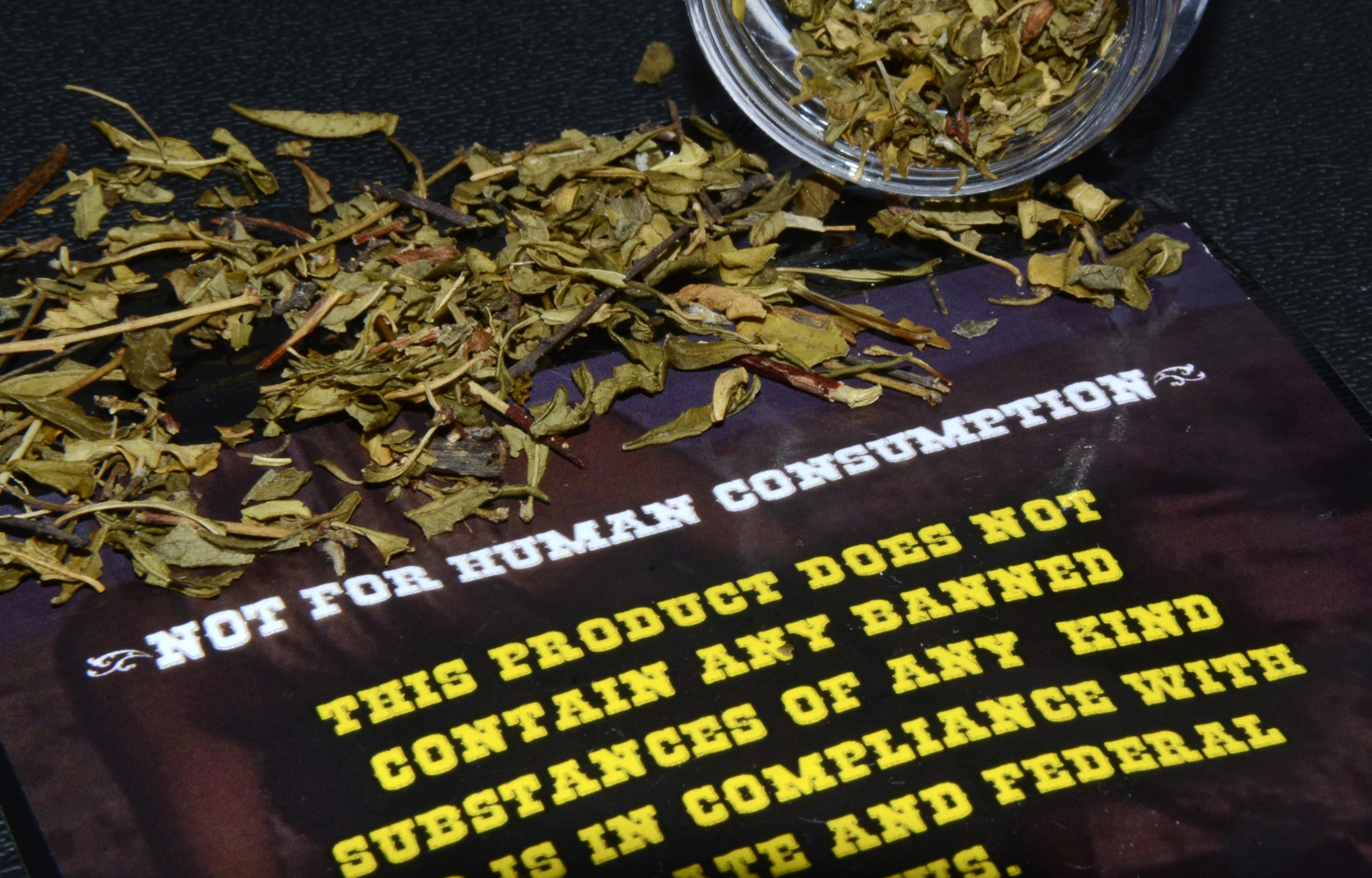3 days later, 300 miles away, man says he won't ever take synthetic drugs again
Friday, January 1, 1904
Side effects of common synthetic drugs:PHYSICAL* Seizures* Hyperactivity* Elevated blood pressure* Kidney failure* Elevated body temperature* Liver injury* DeathPSYCHOLOGICAL* Paranoid delusions* Panic attacks* Hallucinations* Sleep problems* InattentionSource: Cleveland Clinic Journal of Medicine, Tennessee Poison Center
When Stephen Scott Defriese woke up in a hotel room on Aug. 18, he didn't know he'd been missing for three days.
He didn't know his family and police were searching for him. He didn't even know where he was.
When he started to search the room for clues, he found his cellphone.
"It said 27 missed calls," he said. "One of the messages was my son. He was screaming, 'Daddy, please pick up the phone. I know you're still alive, I know you're out there somewhere. Please pick up the phone and call me.'"
Defriese was in Hickory, N.C., about 300 miles from Chattanooga. He had no memory of driving there, or of anything else he'd done since Tuesday night. The Hamilton County Sheriff's Office said he took a lunch break at work on Wednesday and never returned.
At the time, Defriese, 50, worked at a local smoke shop, a job he'd held for about two months. The small shop is packed from floor to ceiling with various tobacco and herbal incense products.
After his son drove him back to Chattanooga, Defriese said he checked into a local hospital, where doctors determined he suffered a psychotic episode as a result of smoking synthetic psychoactive substances -- the products marketed as "herbal incense" that he purchased legally from the shop.
A wide range of synthetic legal intoxicating drugs are sold throughout the U.S., and lawmakers are struggling to stay ahead of supply.
The products, labeled "not for human consumption," are marketed by vendors under many names: incense, plant food, spice -- just not as synthetic drugs.
But people buy the products to get high, said Saralyn Williams, a physician at the Tennessee Poison Center.
"These things can be snorted, smoked like a cigarette, ingested, injected -- all with the intent of getting the psychoactive effects," she said.
The substances mimic the highs of marijuana or methamphetamine and are popular because they are easy to find and falsely considered a safe alternative to marijuana, according to the National Institute on Drug Abuse.
But many people have very serious physical and psychological reactions to the unregulated drugs, Williams said.
"The mental effects are very distressing because patients can be very psychotic," she said. "They can be a danger to themselves and also to other people. They don't perceive things the way you and I would and realize, for example, that it is not safe to jump out of the window of a building."
Defriese said he would never have smoked the herbal incense if he had known how harmful it could be.
"This stuff has to get off the streets," he said. "It caused me to lose days. It's a wonder I didn't get killed or have a wreck and kill somebody during what transpired."
EASIER SAID THAN DONE
While experts and lawmakers agree the sale of synthetic legal intoxicating drugs needs to be stopped, it is difficult for legislation to stay ahead of production.
In the past, the U.S. Drug Enforcement Administration issued bans on synthetic drugs that were based on each chemical's specific formula -- and there are hundreds of variations of the chemicals. When one formula is banned, another similar product -- but made from different ingredients -- quickly takes its place on store shelves.
"The hard part is that all you have to do is tweak the structure just a little, and it becomes 'legal' again," Williams said.
To combat the problem, the Tennessee General Assembly passed three bills in April that make it a felony to sell and manufacture synthetic drugs -- defining the drugs by their effects instead of by their formulas.
Special Agent in Charge T.J. Jordan, a supervisor in the Tennessee Bureau of Investigation's drug division, said the new laws are helping to slow the flow of synthetic drugs.
"We still see it, it's still a problem, but the problem has been curtailed some by the Legislature's last efforts and actions," he said. "But understand, just because you've got synthetics, that doesn't mean we don't quit working cocaine, heroine and meth. This is just another burden on law enforcement to protect the community."
And the only way for law enforcement to be sure a product is banned is to test it, Jordan said.
"So that's where it becomes a little sticky," he said. "Let's say a new brand name comes up -- it may be just a repackaging of the same product that we've seen before, but until it is tested by, say, the TBI lab, it is difficult to know."
Which could be why some stores are still "legally" selling herbal incense products and other synthetic drugs. Such stores mislead customers, Jordan said, and especially young people.
"Because of the accessibility and because it's sold over the counter with chips and soda pop, youth think, 'Wow, it must be OK,'" he said.
One in nine high school seniors reported using synthetic marijuana in 2011, the National Institute on Drug Abuse reported.
"These convenience stores and tobacco stores are becoming nothing more than a common street corner drug dealer," Jordan said.
Smoke shop owners insist they do not sell illegal substances.
Regardless of whether the herbal incense products he smoked were legal, Defriese said he will never smoke them again.
"This is a horror story," he said. "If I ever see anybody with a package of it, I'm going to knock them down, snatch it out of their hands, rip it open and shake it all over the ground."

